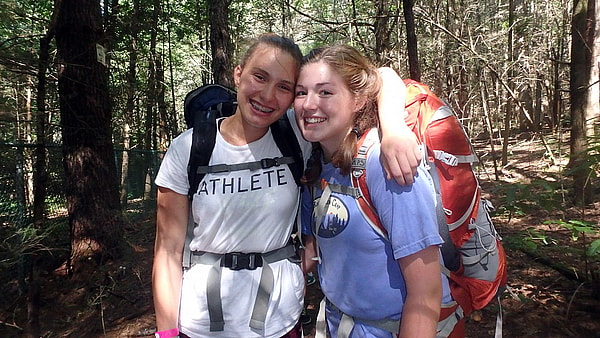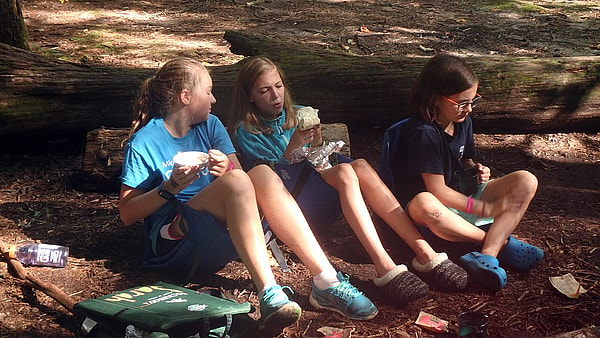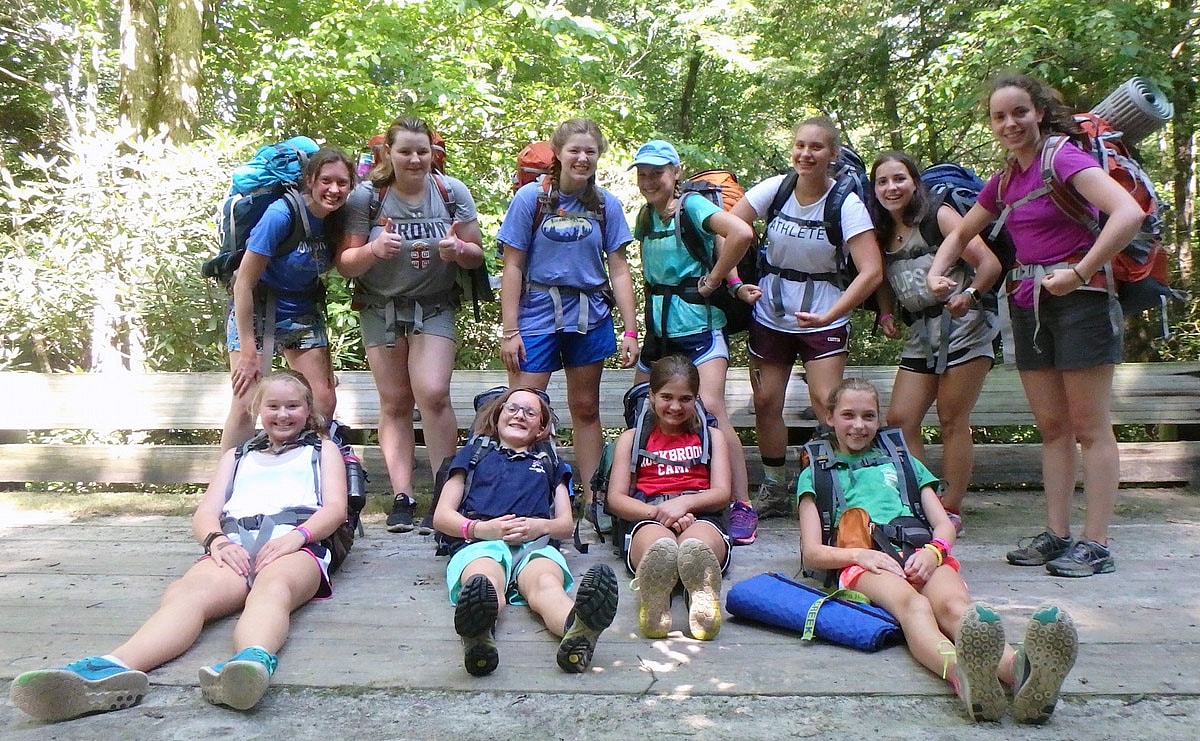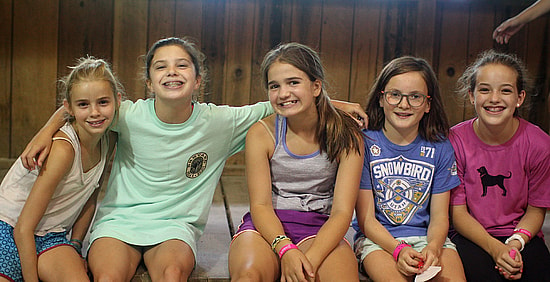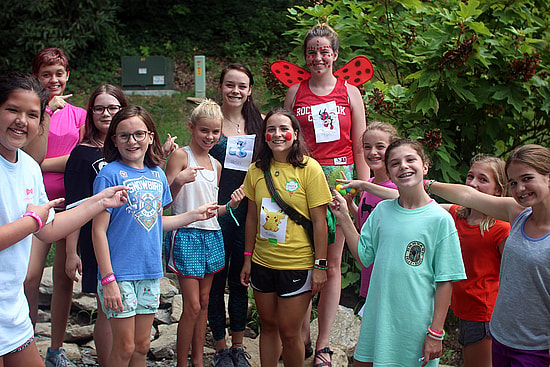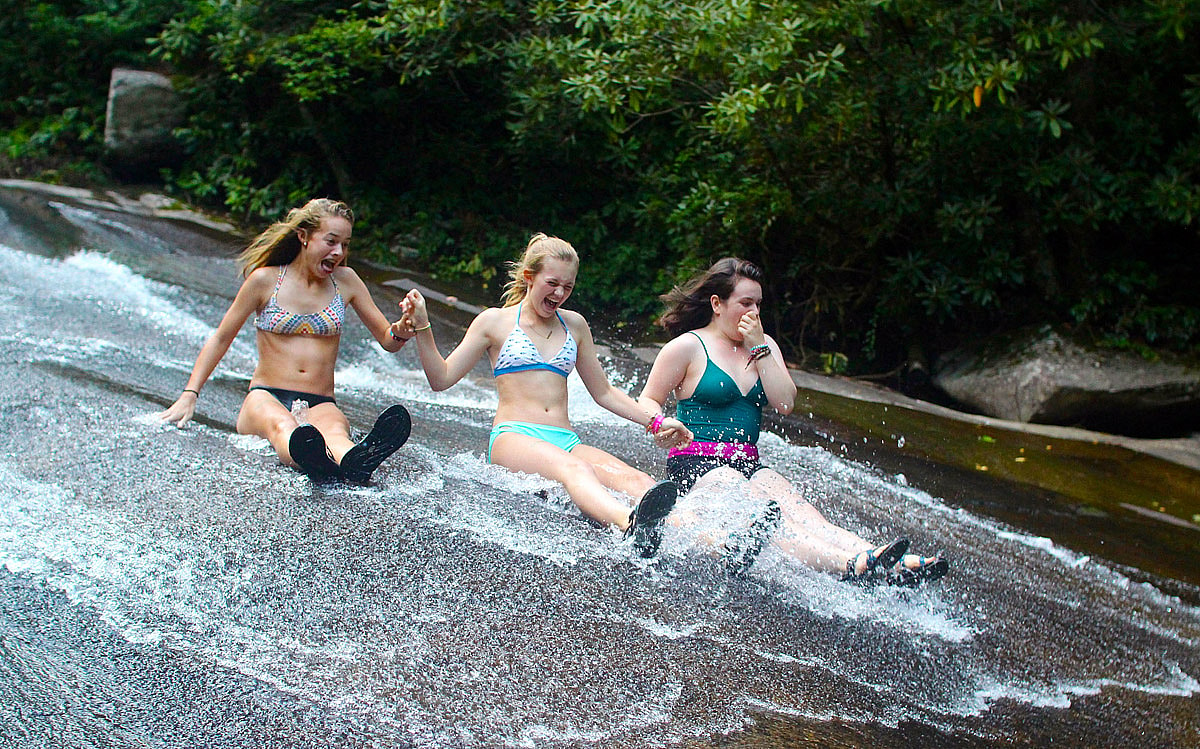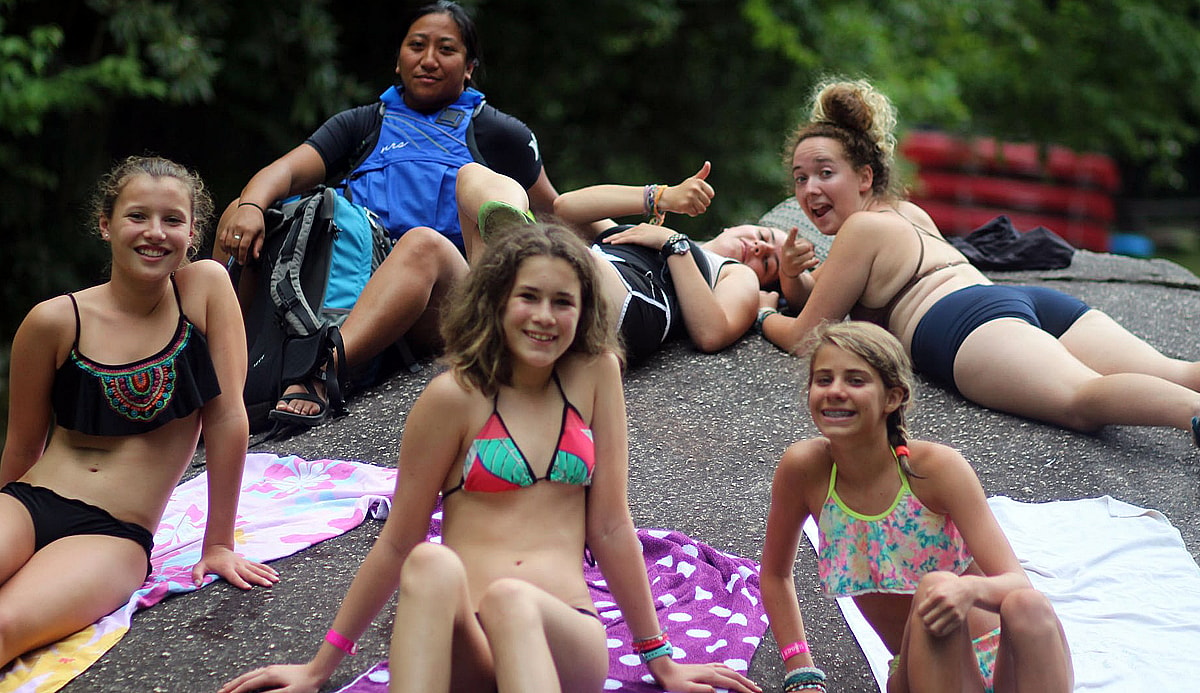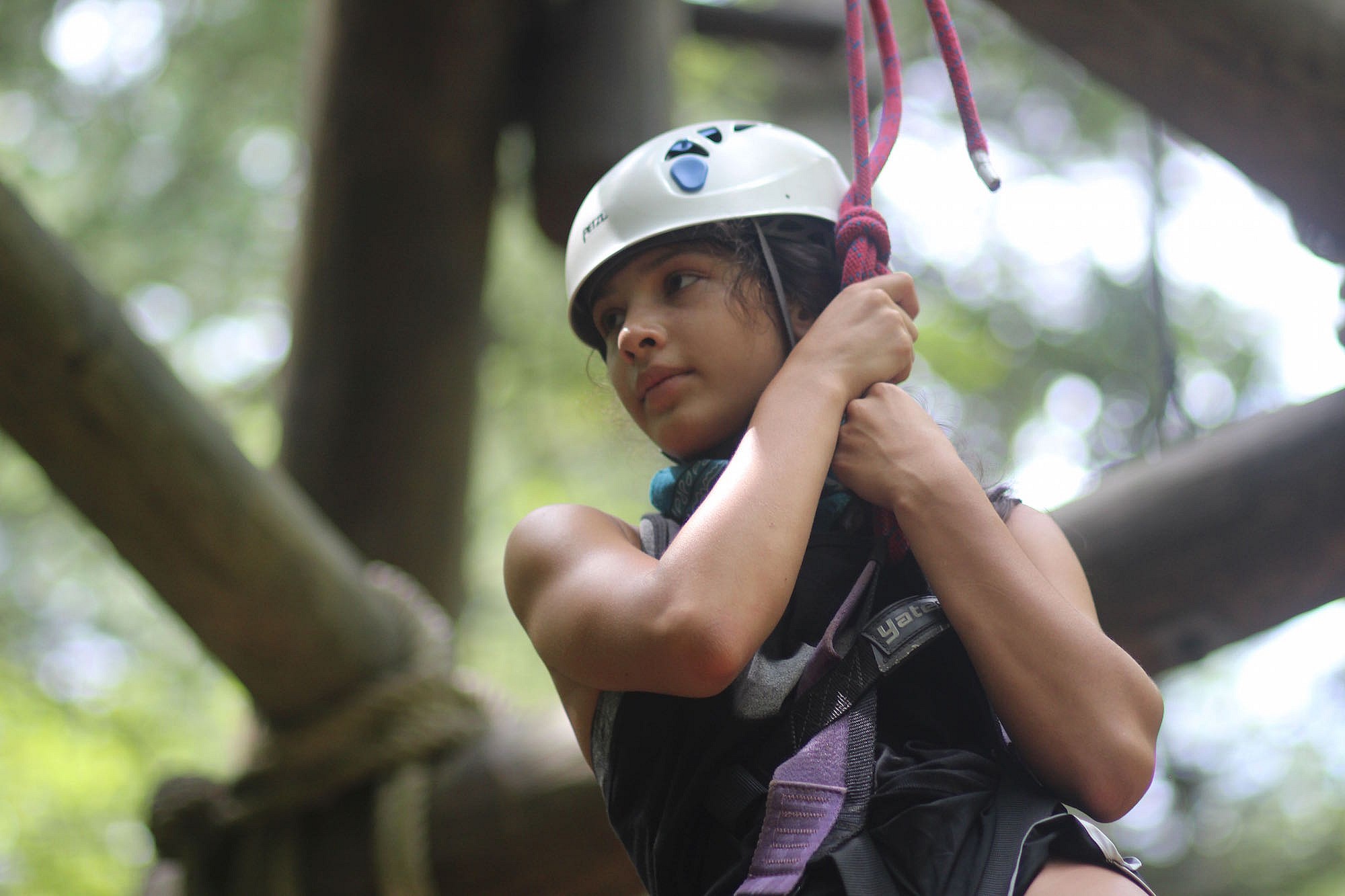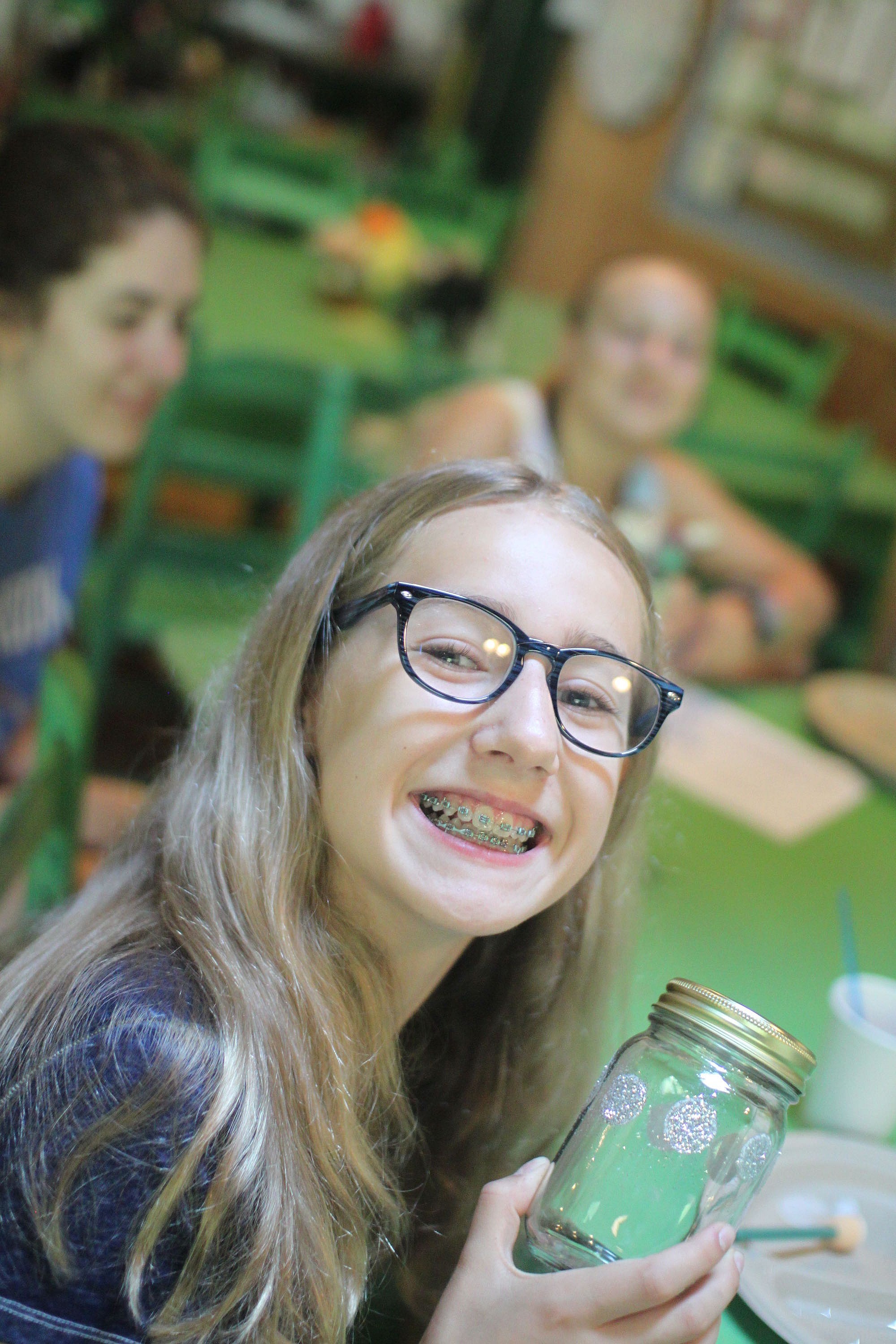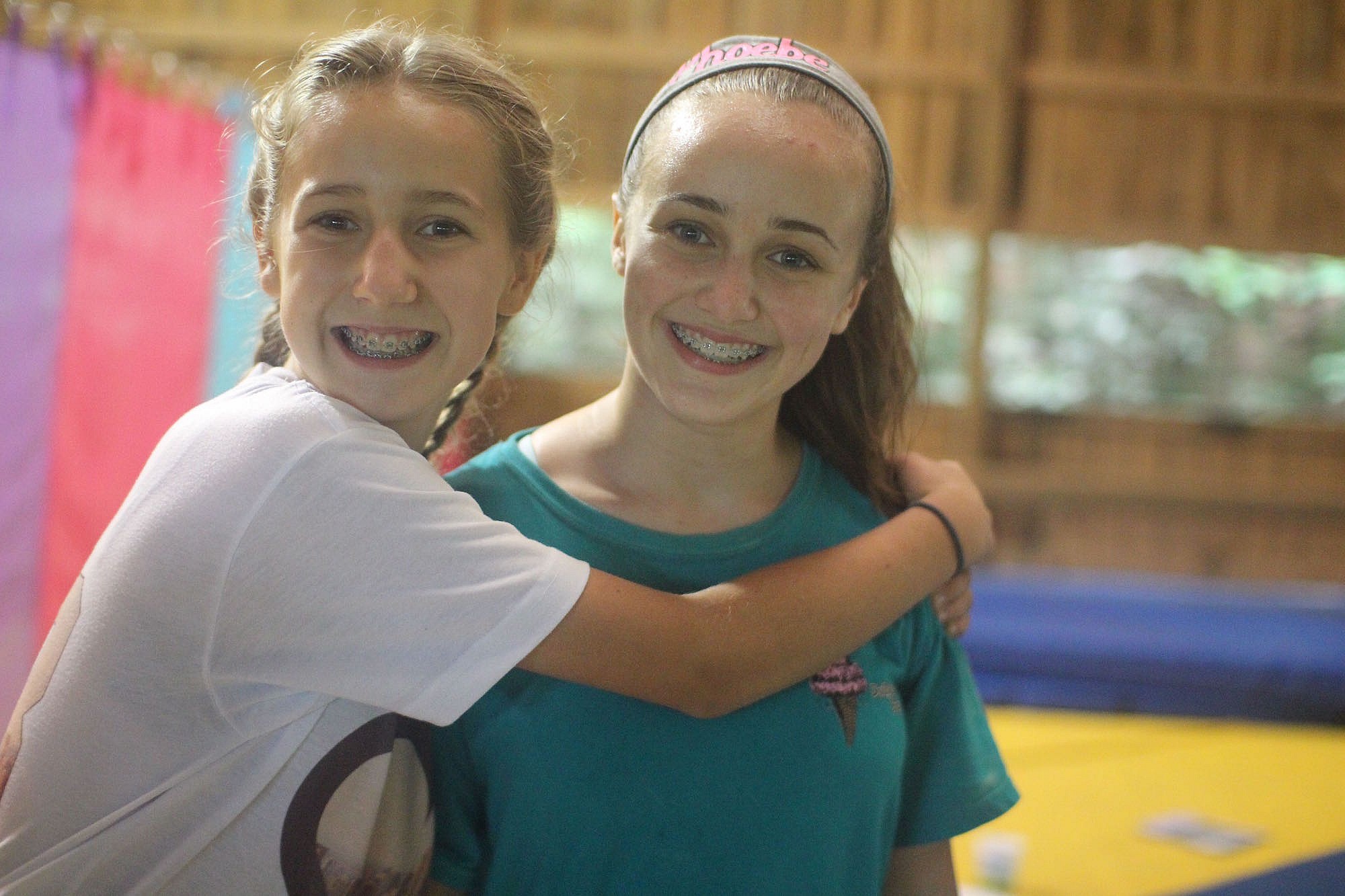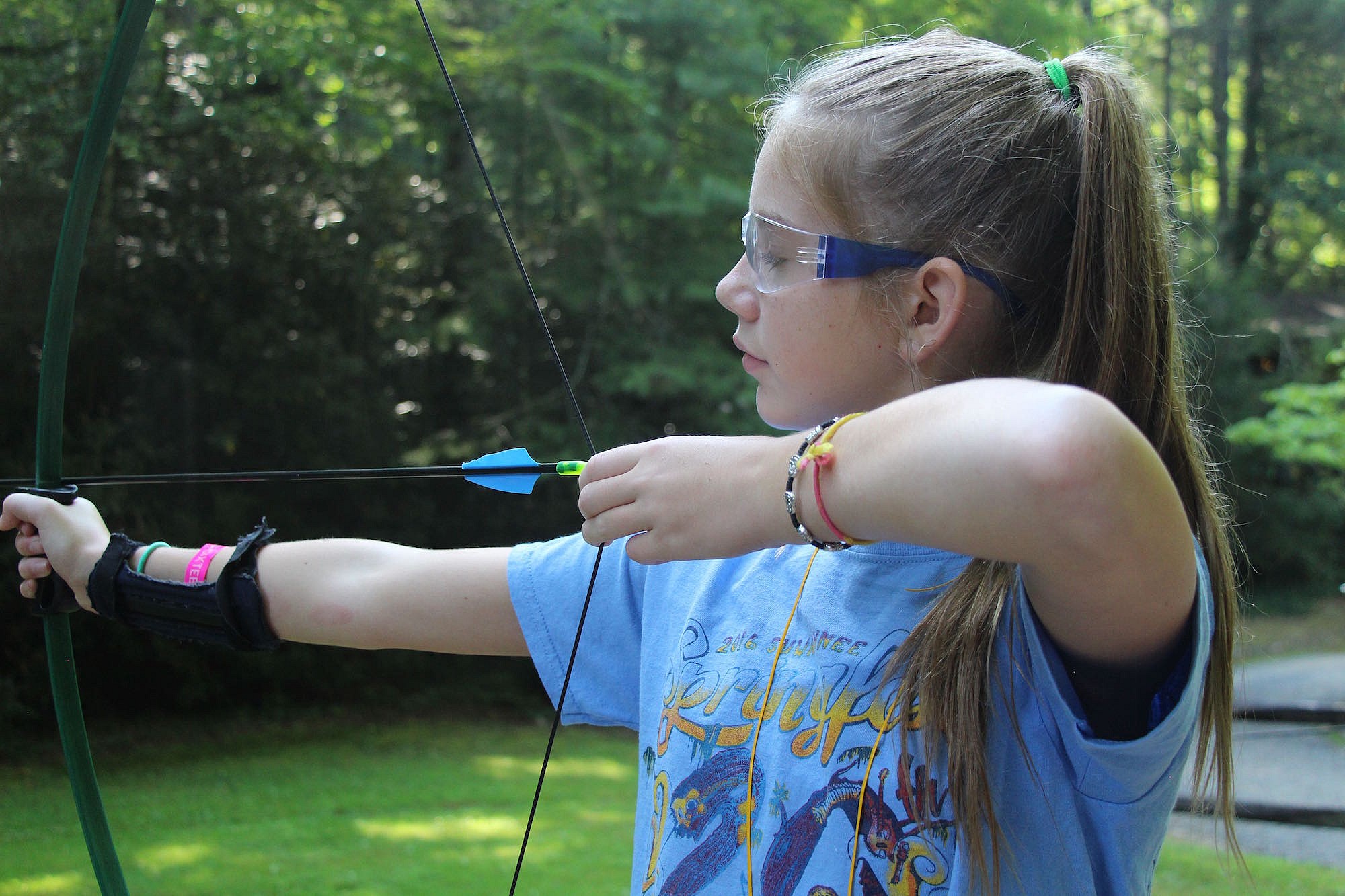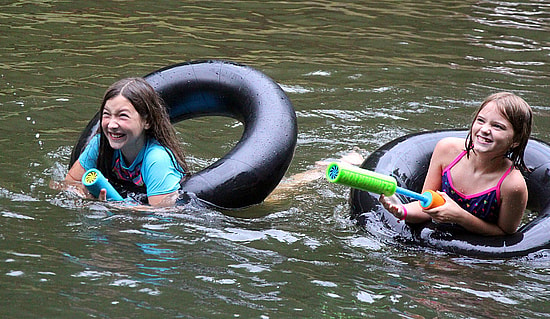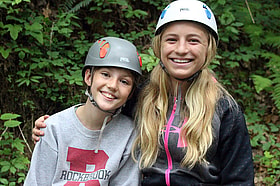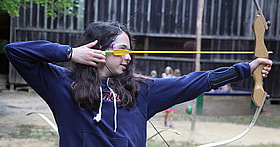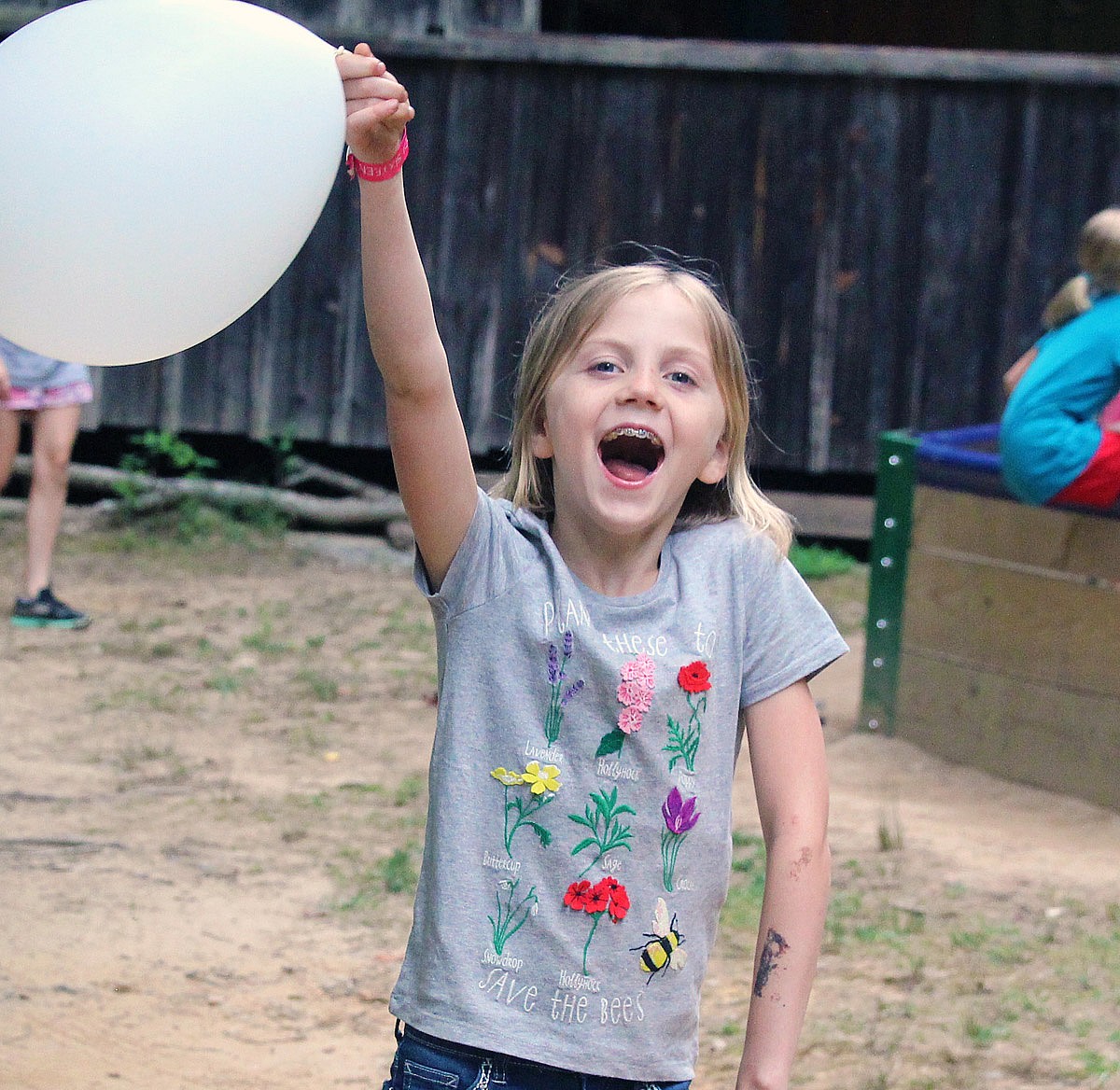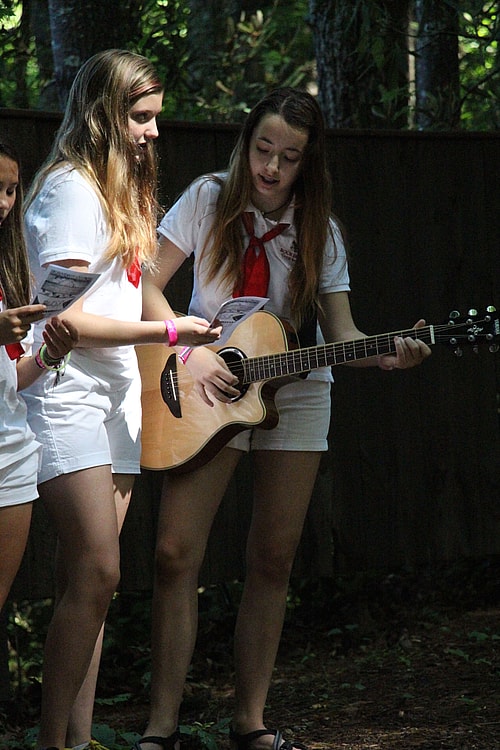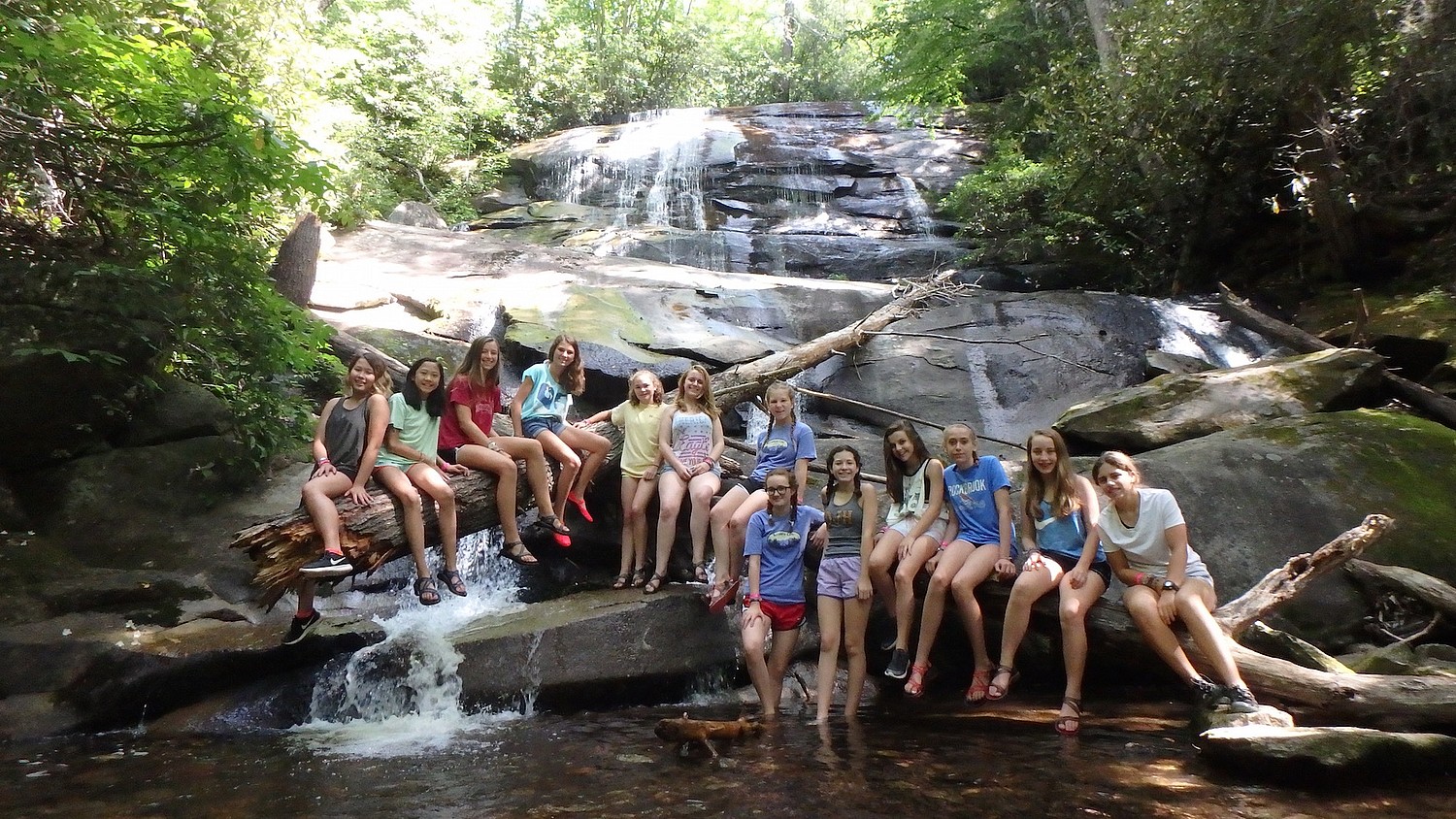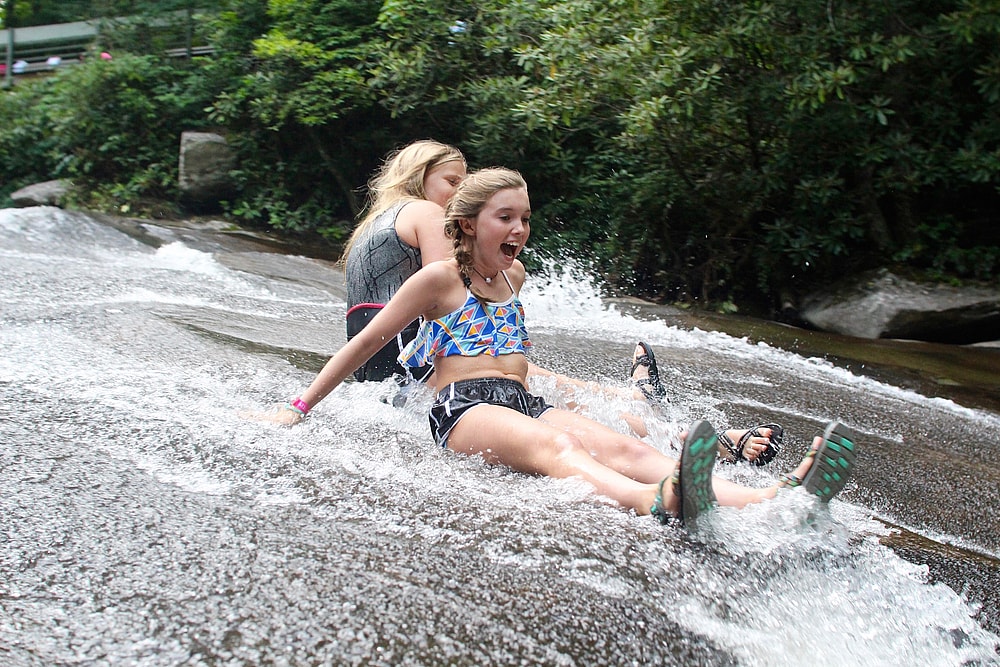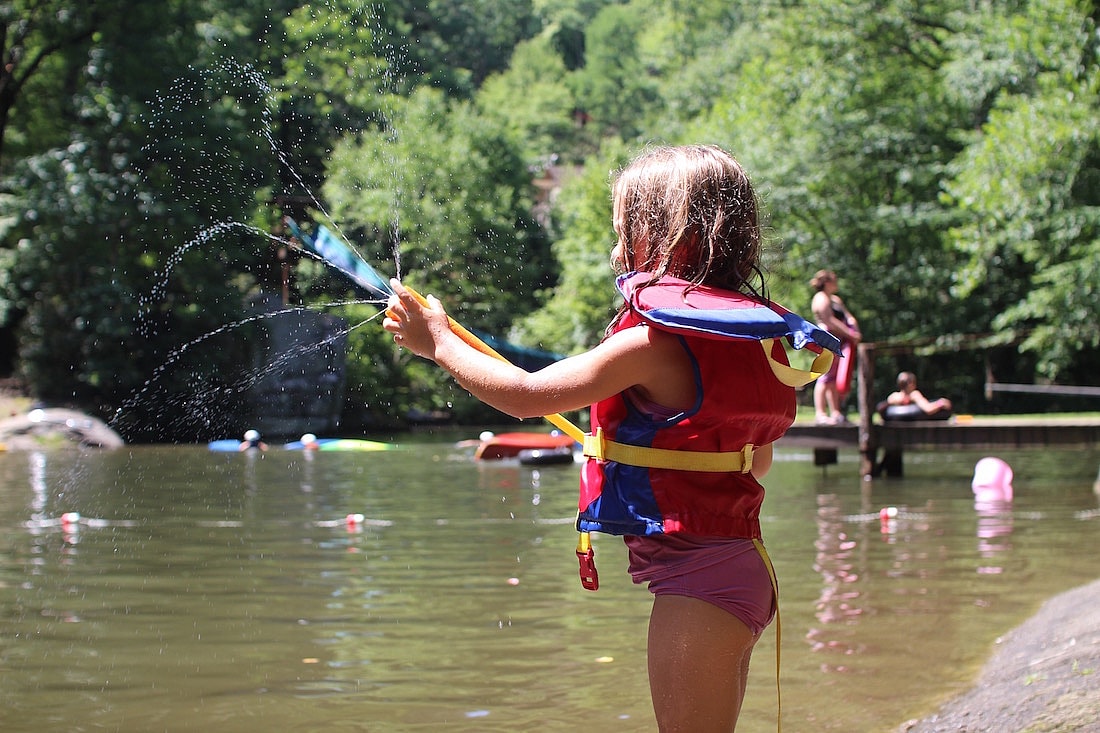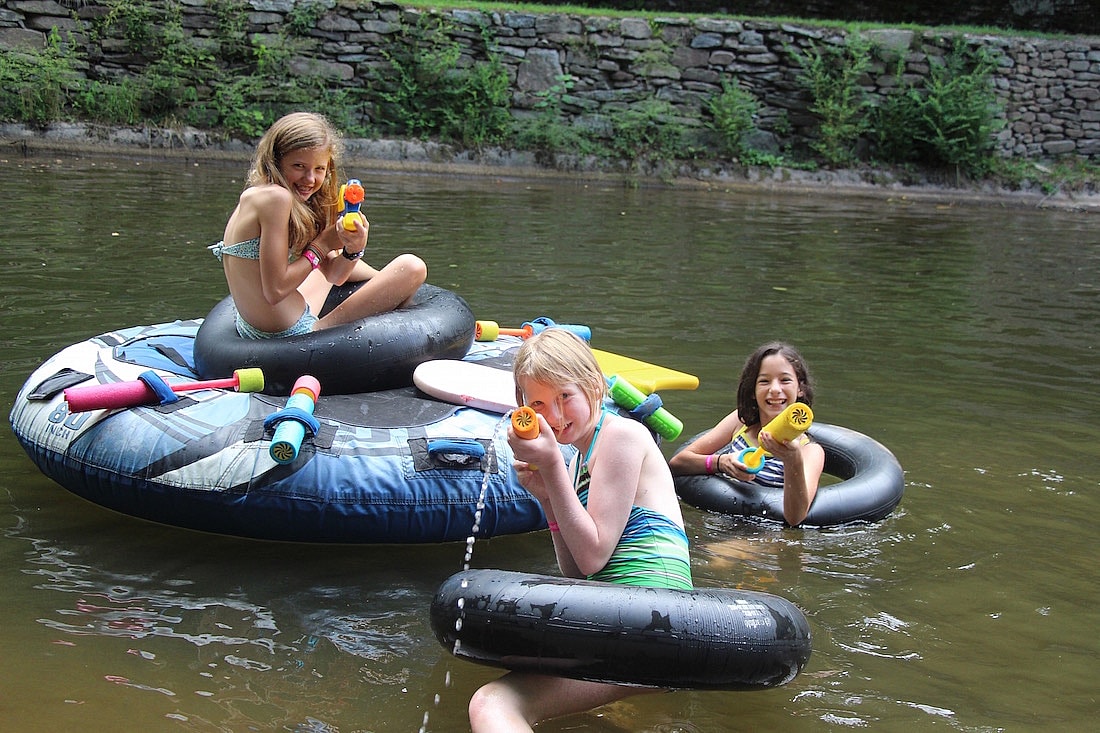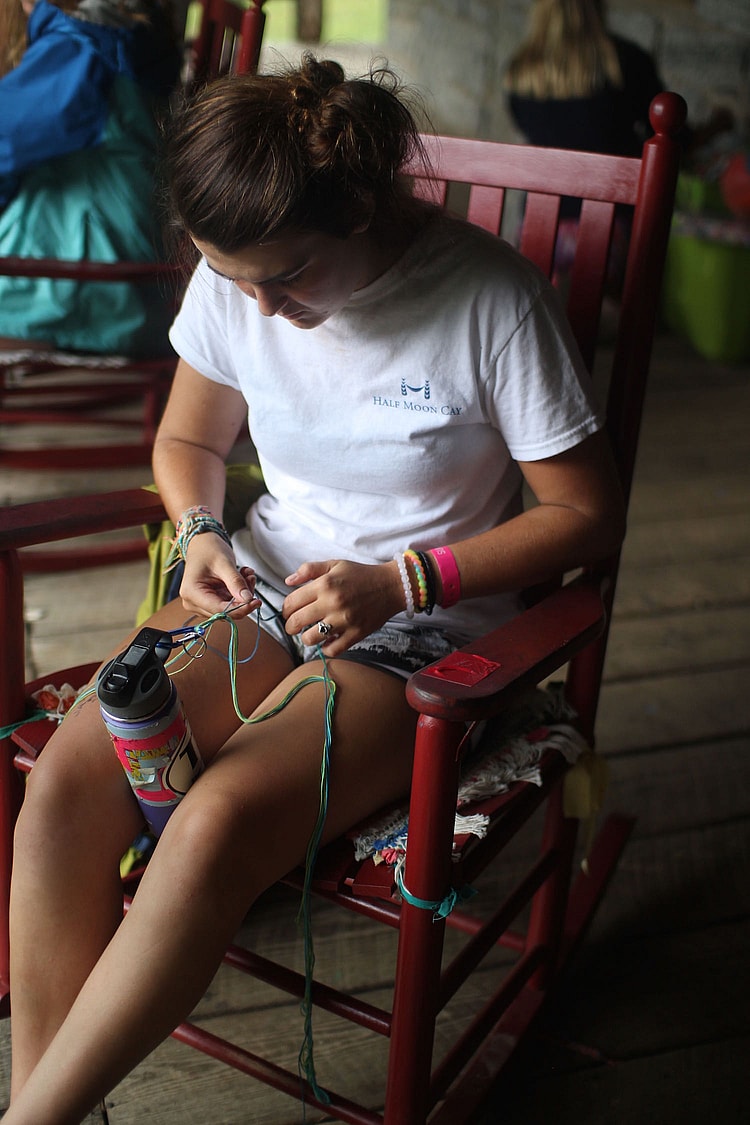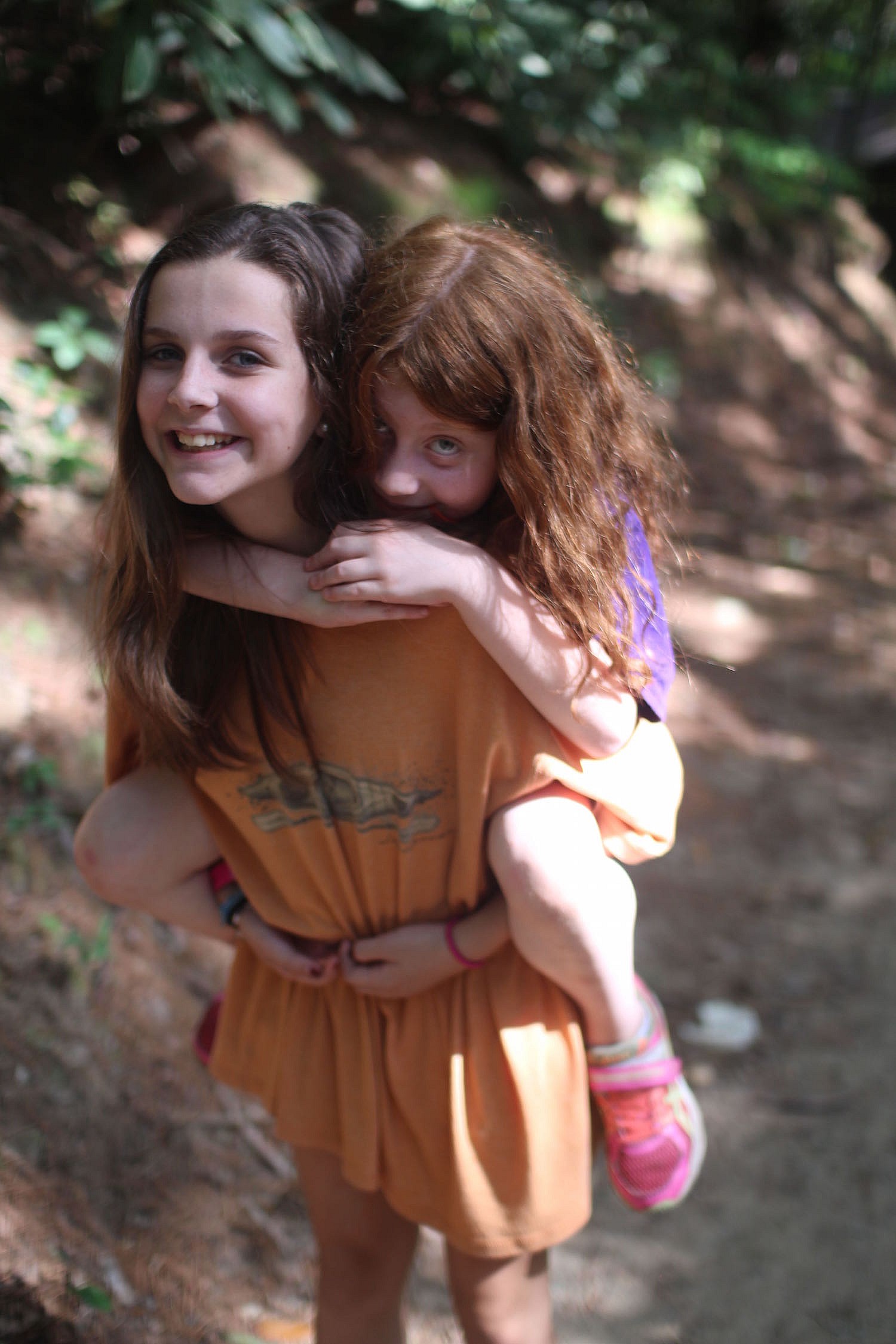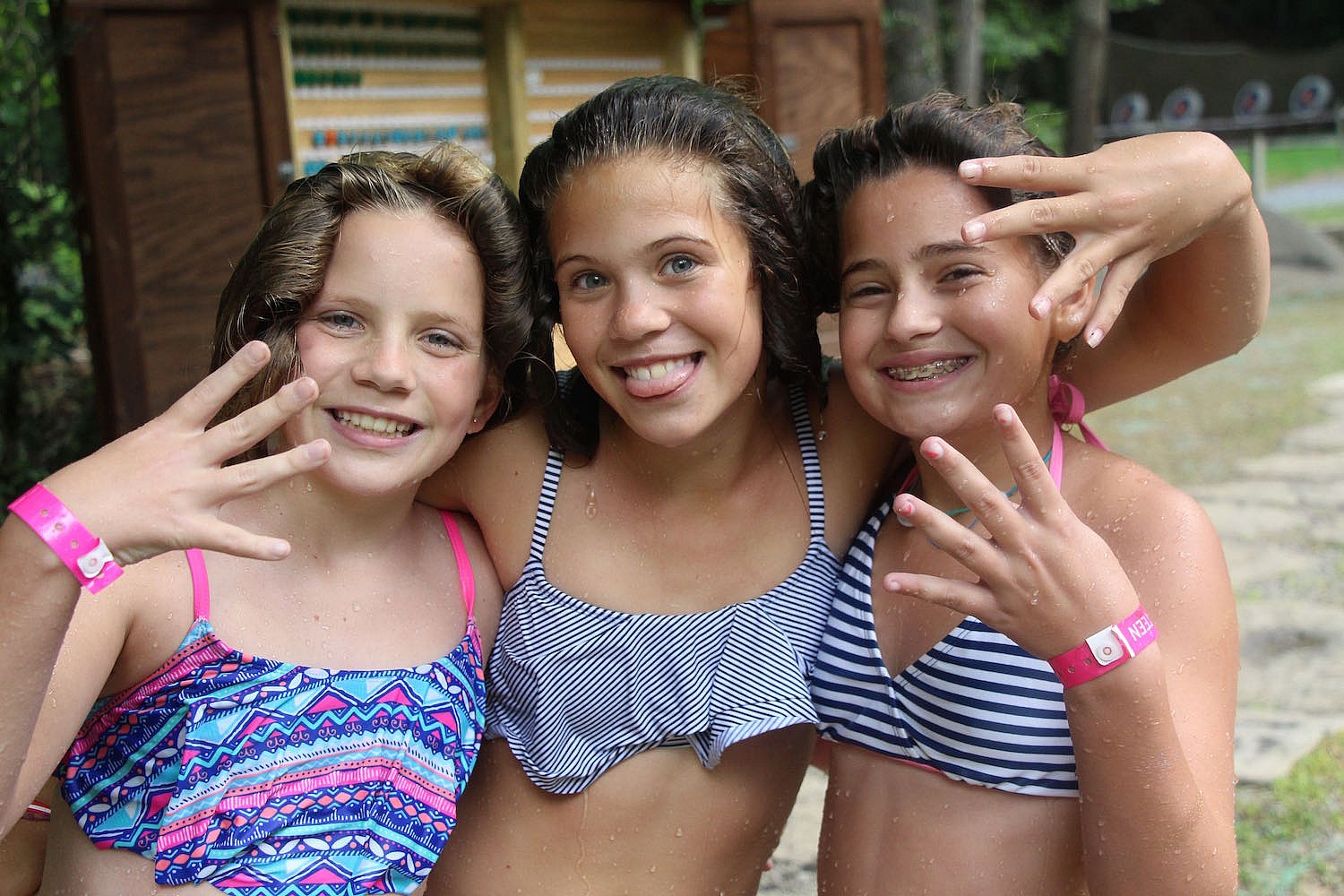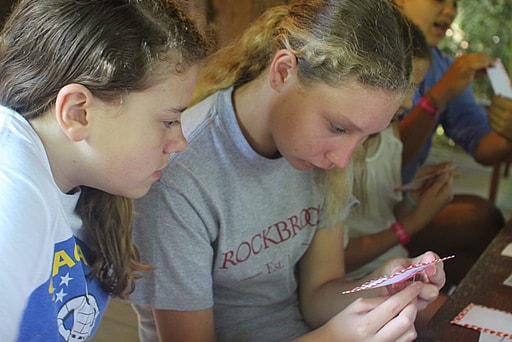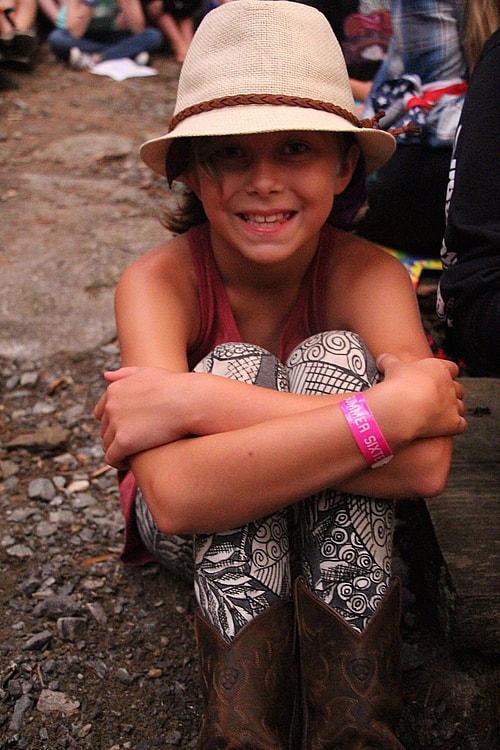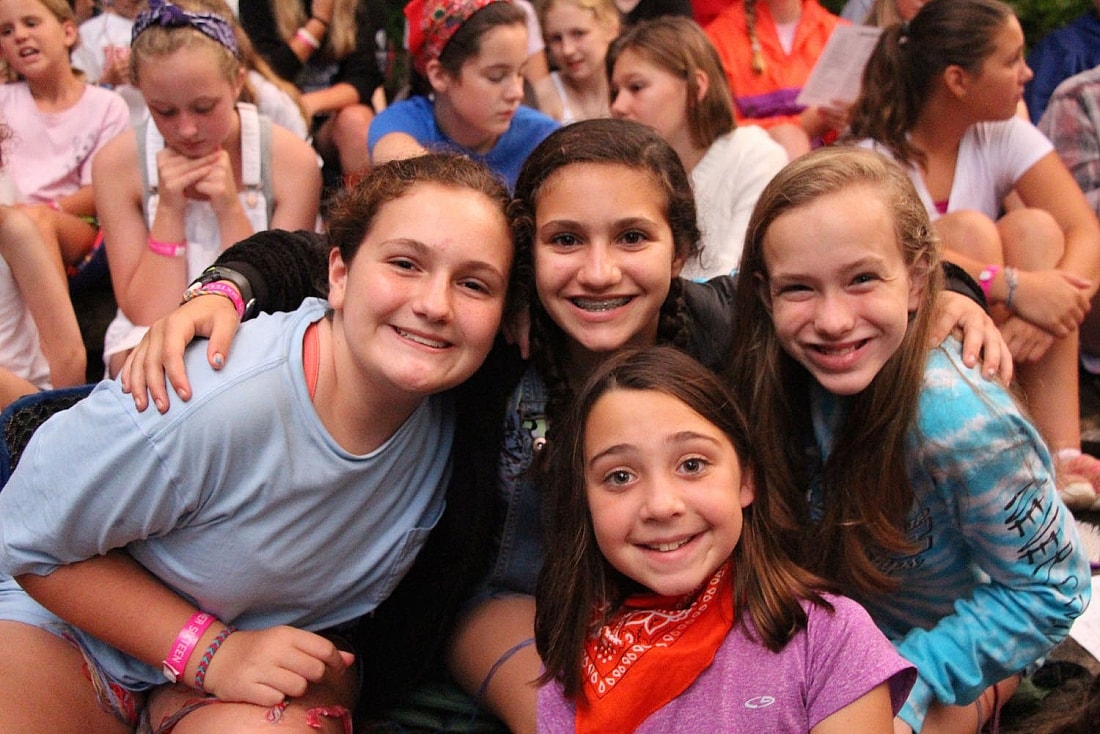We pulled up to the Fish Hatchery in Pisgah National Forest, ready for a backpacking overnight. In the van were four middlers, four seniors, and three staff members all ready and excited for the night that awaited us. We got all of our gear ready and spent time adjusting our backpacks before taking a picture and doing some basic introductions. Some of the girls were great friends while others just signed up because backpacking sounded exciting and new. After taking a ‘before’ picture, we were off to our campsite, Pickelseimer Fields (but at Rockbrook, we call it The Enchanted Forest) before heading to John Rock for sunset.
On the way to the campsite, girls talked and laughed, but mostly stayed in their age groups. We stopped a lot for water breaks and bathroom breaks, and the question, “Are we almost there?” was commonly heard. This is normal: backpacks make every hike more exhausting, and going uphill is particularly challenging. In between, though, we also practiced a bird call that could help us get each other’s attention (coo-ee) and we sang a few camp songs because they make even the most exhausting moments better.
We were in no hurry at all, and during the flat parts, we enjoyed crossing wooden bridges and walking through muddy patches. On parts of the trail, the trees formed a kind of tunnel and it became clear why it was called The Enchanted Forest. As we stopped for a water break after a particularly tiring hill, we started talking about the three types of fun. One of the seniors explained. Type 1 Fun is like the fun of a roller coaster or a nice day at the beach; it’s easy fun that does not require much effort, but also does not give much personal satisfaction. Type 2 Fun is like a long hike. It may be challenging as it is happening, but afterward, you look back at it and would do it again because it was fulfilling and meaningful. Type 3 Fun is something you would not want to do again but it gets you where you need to be (portaging a canoe or waiting out a lightning storm). While explaining this, the senior suggested that this hike was Type 2 fun and ensured the younger girls that they would look back at it and be proud they did it.
Even with stops and starts, we were at our campsite within thirty minutes of the time that we left the parking lot of the Fish Hatchery. We found a great campsite near a creek that had a big firepit and plenty of room for camping. Each age group had their own tent, so we encouraged everyone to quickly pitch their tents so we could catch the sunset at John Rock. As the girls were preparing their tents, two of us found a perfect sourwood tree over the creek to hang the bear bag. After eating a few snacks and getting more water, we were off for our hike.
At first, the hike was easy as we did not have backpacks weighing us down. We climbed over fallen trees and crossed creeks, hoping the sun was still up, though we could not see it through the branches. At one point, we came across a bees’ nest, and a couple of girls got stung. Everyone was a little shaken up, but none of the girls were allergic, so we decided to take a break and regroup. We have been trained in wilderness medicine, so we treated everyone’s stings and mostly tried to calm down as a group. As we treated stings, the seniors kept everyone else distracted and calm by getting to know the middlers. In fact, one of the seniors mentioned to me later that she was quite scared of the stings, but she knew that if she was calm about it, the middlers would be too. They started playing a game, “pancakes or waffles,” and slowly, everyone started to calm down, ready to continue hiking.
We looked at the map and decided that, if possible, we should not go back the same way we had just come (because of the bees). The trail looped in such a way that we could get back to the camp site by passing John Rock and going around a different way. We continued hiking as twilight hit, and we made it to John Rock while there was still light in the sky. The view took our breaths away. We were astonished by the vastness of the forest and by our smallness. Instantly after stepping on the rock, we all agreed that the journey was worth it.
It’s a truth that I have found in hiking: no matter how difficult a journey may be, reaching the destination makes every moment of tiredness and every obstacle okay. You realize that it was always going to be okay, though you could not always see it, and the immediate reward makes any past adversity almost vanish from your mind.
After getting a few pictures and taking the view in, we decided it was time to head back to camp. We continued following our loop, ready with water bottles and flashlights. We walked and walked, and some girls got tired and nervous as we continued to check the map. We always knew where we were, but the hike did take longer than we originally anticipated because we were walking around a loop. We talked to the girls and showed them where they were, but we also let them take care of each other. The senior girls stepped in again, keeping up good spirits and laughing throughout the hike. They played games and assured the middlers that they had no reason to be scared.
The beautiful part of this story is that it worked. All of the girls who were nervous were able to dig in and keep walking further than they thought possible. At some point, everyone realized that asking how much further we had to go was counterproductive. We entered a point where we realized reaching our destination was something we would do together and only putting one foot in front of the other would help us get there. When we turned on to the bypass or realized we were at the final stretch, we all rejoiced together. When we saw the bear bag hanging over the tree on the creek, we cheered and hugged, relieved that we had all completed this adventure, supremely satisfied with the work we had just done. It was Type 2 fun (or as one senior said, Type 2.5 Fun), and we were filled up in a way that we had rarely experienced.
When we got back to the campsite, we made a small fire and ate burritos. The girls roasted marshmallows and we read a few thoughts about teamwork that related to our journey. A former NOLS instructor, Morgan Hite, once reflected, “Life can be simple and this is a good place to experience that. We need to be tired and cold and hungry, and then make ourselves a hot meal and go to our sleeping bags to realize that life is complete and how rarely we experience that.” At the end of the day, we were tired and hungry, but we were able to work through these things because we were part of a team. We had everything we needed, but we never would have known it without going on such a journey.
The next morning, we ate oatmeal and effortlessly hiked out. There was lightness in the air as everyone talked and laughed, no longer divided by age groups, but bonded together by yesterday’s adventures. We no longer cared about wearing heavy backpacks or getting muddy shoes (it also helped that we were journeying downhill). The final thing we did was to take an ‘after’ picture, in the exact same positions we were in the day before.
The picture was great, but could not accurately capture the journey we had been through together. We made an arc during this backpacking trip: we started somewhere and ended up somewhere different. Over the course of sixteen hours, the seniors were leaders and role models, pushing past their own tiredness or bee stings for the greater good of the group. The middlers became great team members and realized that, despite being pushed a little, they were able to accomplish whatever their goal was. The risk of real danger was low throughout the entire journey. We had a map, water, fully stocked first aid kit, and a lot of experience on our side.
Even so, our hike was real. The only way back was for all of us to work together, to pay attention, and to keep walking. We couldn’t take a shortcut or conjure a hot plate of food. But I think that is what makes backpacking such a profound experience. We work for everything we have, so even just arriving back to a tent site is cause for a celebration. We give ourselves a real-time challenge (getting to a destination) and we rely on each person we are with to help us solve it.
We got back a few days ago, and ever since we have been back, I have noticed the backpackers still look at each other a little differently. They still talk about their experiences, and we are making bracelets from the bear bag rope as a symbol of the bond. We all grew through the challenge, learned a lot about each other, and learned a lot about ourselves.


